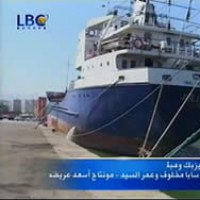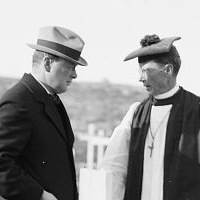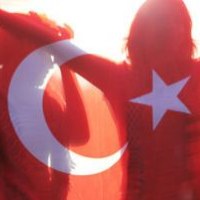![]()
Tue, Nov 15, 2011 | WikiLeaks
WikiLeaks: U.S. Discusses Goldstone Report with Senior Israeli Officials
A delegation headed by Michael Posner, Assistant Secretary for Democracy, Human Rights, and Labor, met with senior Israeli officials in early January 2010 to discuss Israel’s response to the UN Goldstone Report.
Source: WikiLeaks
Reference Created Classification Origin 10TELAVIV183 2010-01-27 09:33 CONFIDENTIAL Embassy Tel Aviv
VZCZCXRO9057
PP RUEHROV
DE RUEHTV #0183/01 0270933
ZNY CCCCC ZZH
P 270933Z JAN 10
FM AMEMBASSY TEL AVIV
TO RUEHC/SECSTATE WASHDC PRIORITY 5168
INFO RUEHXK/ARAB ISRAELI COLLECTIVE PRIORITY
RUEHJM/AMCONSUL JERUSALEM PRIORITY 3606
RUEHGV/USMISSION GENEVA PRIORITY 0663
RHEHNSC/NSC WASHDC PRIORITY
RUCNDT/USMISSION USUN NEW YORK PRIORITY 9709C O N F I D E N T I A L SECTION 01 OF 03 TEL AVIV 000183
SIPDIS
E.O. 12958: DECL: 01/26/2020
TAGS: PREL PGOV KWBG PTER IS
SUBJECT: A/S POSNER DISCUSSES GOLDSTONE REPORT WITH SENIOR
ISRAELI OFFICIALSREF: A. A) 09 TEL AVIV 02831
¶B. B) 09 TEL AVIV 02342
¶C. C) 09 TEL AVIV 2283Classified By: Charge d’Affaires Luis G. Moreno for reasons 1.4 (b) and
(d).¶1. (C) SUMMARY: A delegation headed by Michael Posner,
Assistant Secretary for Democracy, Human Rights, and Labor,
met with senior Israeli officials in early January to discuss
Israel’s response to the UN Goldstone Report. Deputy Prime
Minister Dan Meridor said the GOI was deliberating whether to
appoint an independent review panel to assess the MOD
investigations into alleged law of war violations and some
issues of military doctrine. He said senior officials
understand they need to respond to the Goldstone allegations,
but have not agreed on the mandate, responsibilities, or
composition of such a panel. In meetings with Ministry of
Foreign Affairs officials, A/S Posner discussed how best to
prepare for the March UN Human Rights Council session and
provided an assessment of what measures the international
community would focus on, including the perceived
independence and credibility of any Israeli investigation.
MFA officials emphasized the level of their cooperation with
the U.N., including the Board of Outline Inquiry report that
just resulted in an ex-gratia Israeli payment of ten million
dollars for damage to UN facilities in Gaza, and hope for a
positive public statement on this matter from U.N. Secretary
General Ban Ki-moon. A/S Posner met January 6 with Deputy
Attorney General Dr. Shavit Matias, who lamented that
Goldstone’s positive international reputation lent
credibility to a report that she questioned whether he had
even completely read. She stated that Israel had an
obligation to investigate charges, and was doing so
aggressively, but she expressed concern that the report would
trigger other anti-Israel action at the UN and ICC and
through claims of universal jurisdiction elsewhere. End
Summary.—————————–
DEPUTY PRIME MINISTER MERIDOR
—————————–¶2. (C) A/S Posner met with Deputy Prime Minister and
Minister for Intelligence and Atomic Energy Dan Meridor,
along with MFA Deputy Director General for North America
Barukh Bina, on January 7. Meridor said he had called early
on for a committee of inquiry, not because he did not have
confidence in IDF procedures, but because Israel needed a
process that would minimize its exposure to investigation by
international actors, particularly by the ICC and countries
that apply universal jurisdiction. It was important, he
said, that Israel be seen as a country that is moral and
reflects upon and investigates its actions, and he lamented
that the Goldstone Report damaged Israel’s credibility in
this regard.¶3. (C) Meridor explained that the GOI understood the urgent
need to formalize a plan to respond to the Goldstone Report,
but nothing had been agreed to yet. The details, including
scope and composition of any Israeli investigatory committee,
had not been agreed to, “but there is a feeling that we need
to announce something within days,” he said. It was
Meridor’s view that the urban combat conducted in Gaza
required a new international legal paradigm. He added that
figuring out the answer to the moral and legal questions
posed by such combat was something that required an
international effort, with the topic being discussed in depth
in various fora.¶4. (C) A/S Posner assured Meridor that the USG understood
IDF concerns about having its conduct investigated by
international bodies, as well as its concern that such
investigations could set a precedent for each future
conflict. He noted the international community would be
looking for two elements in the GOI response to Goldstone’s
report. The first would involve the IDF making known its
concluded investigations and an update on the status of
ongoing investigations. The second would involve an
examination of GOI processes and IDF doctrine issues. A GOI
announcement by the March Human Rights Council of the
establishment of a committee or similar process that would
take a broad look at how the IDF conducted the operation,
focusing on how urban combat could be conducted, if
necessary, while limiting civilian casualties — such as that
described by the DPM — would be useful. He advised that the
GOI’s presentation of its response was very important, given
the lack of a compelling public narrative so far to competeTEL AVIV 00000183 002 OF 003
with the Goldstone report,s flawed one. He encouraged the
GOI to reach out to otherwise friendly countries that are on
the fence, including the British, Dutch, and Chileans.¶5. (C) Meridor expressed concern that a response to the
Goldstone Report along the lines he was discussing with A/S
Posner might not be adequate — or happen quickly enough —
to slow progress toward action by ICC prosecutor Luis
Moreno-Ocampo. Posner agreed that an effective GOI response
to international concerns raised in the Goldstone report,
including announcing establishment of an independent and
credible Israeli process, would be very helpful to Israel’s
cause in many different fora.—————————
MINISTRY OF FOREIGN AFFAIRS
—————————¶6. (C) A/S Posner met with the MFA team involved in
coordinating the GOI submission to UNSYG Ban, as directed by
the UNHRC special session in October. Israeli attendees
included Legal Advisor Ehud Keinin; Principal Deputy Legal
Advisor Daniel Taub; Legal Counselor Arthur Lenk; Evietar
Manor, Deputy Director General for U.N. and International
Organizations; Simona Halperin, Director for Human Rights and
International Organizations; Meirav Elon Shahar, Director for
U.N. Political Affairs; and Barukh Bina, Deputy Director
General for North America. A second meeting was held at the
MFA,s request with MFA Director General Yossi Gal.¶7. (C) A/S Posner laid out for the MFA officials in both
meetings the two-pronged approach he had discussed earlier
with Meridor, stressing that the GOI has a positive story to
tell about its domestic efforts. A review of the IDF’s
investigations, along with an examination of lessons learned
and best practices in asymmetrical warfare, would be a more
compelling narrative internationally than a limited report
focusing only on the cases highlighted in the Goldstone
Report. A/S Posner also suggested that the GOI look
closely at working with independent third-party “validators,”
to include sometime skeptics, who could vouch for the
seriousness of GOI’s investigatory process. Ultimately, he
explained, the international community would assess whether
an Israeli investigation was independent and rigorous,
whether anyone would be held accountable (e.g., wrongdoing
being addressed through criminal charges or disciplinary
action), and whether and to what extent the army would look
at doctrinal and operational changes based on lessons
learned. In this context, Posner noted that the
delegation,s discussions with the IDF had been very
illuminating and that the senior IDF leadership indicated
that it was thinking carefully about the lessons learned from
its experience in Operation Cast Lead.¶8. (C) MFA legal advisor Keinan noted concern with any
process that might substantively reopen and re-evaluate the
specifics of the IDF’s investigations of the 36 cases
highlighted in the report. He thought that the GOI should
instead highlight the very real and thorough process that the
GOI had undertaken. The legal team also worried about the
timing of public announcements once the IDF begins to close
some of the individual investigations for lack of evidence,
while at the same time not being in a position to comment on
those investigations that might lead to disciplinary or other
individual accountability, as those cases typically take
longer to bring to closure.¶9. (C) Manor explained that Israel was working hard (with a
team led by PDLA Taub) to prepare its submission to the UN on
January 29 as input for the Secretary General’s report to the
Human Rights Council. He noted that Israel would like its
cooperation acknowledged. Manor noted that the UN,s High
Commissioner for Human Rights would issue a separate report
in March, and while he expected that report and the Secretary
General’s report to be “negative,” he advised that the
Secretary General should be involved directly with both
drafts to avoid discrepancies between them that could prove
embarrassing to him and his office. Manor said he did not
think the UNSC would meet on the Goldstone Report right away.
Rather, he anticipated that the Arab world would wait for “a
critical mass of events” to take place and then push for the
UNGA or UNSC to take up the matter. Posner commented that any
flare-up of violence could provide an excuse for countries to
hasten consideration of the report.¶10. (C) Finally, A/S Posner asked if the Israelis were aware
that Hamas was working with international legal experts to
assess its role in the war. The MFA officials said they hadTEL AVIV 00000183 003 OF 003
not known of this, but that they would share a paper with the
USG detailing allegations against Hamas so that the
international community could highlight its conduct as well,
especially since the Goldstone Report set a low bar of
criticisms for Hamas to jump over.——————————
DEPUTY ATTORNEY GENERAL MATIAS
——————————¶11. (C) A/S Posner met with Deputy Attorney General Matias
on January 6 to discuss strategies for dealing with the
Goldstone Report. Matias offered that the IDF,s position
was understandable regarding the allegations in the
Goldstone report, and expressed outrage at the report,
calling the charges “unconscionable.” She said Israelis
would have looked seriously at the criticisms if the report
had been more balanced, but that these allegations were “not
even answerable.” Matias lamented that Goldstone’s
reputation lent credibility to a report that she questioned
he had completely read. She stated that Israel had an
obligation to investigate charges, and was doing so
aggressively. Matias asked if the U.S. expected support from
Secretary General Ban Ki-Moon in responding to the report,
and expressed concern that the report would trigger other
cases in the UN, ICC and elsewhere. She expressed particular
concern about claims of universal jurisdiction in other
countries and about allegations before ICC Prosecutor
Moreno-Ocampo, particularly those involving injuries to
persons who were dual nationals (with one nationality being
of a country that is a party to the Rome Statute). She asked
Posner’s advice on whether the Israelis should meet with
Moreno-Ocampo. A/S Posner said that he would want to think
about the question more deeply, but that there could be
benefits to their talking to him.——————————-
Welfare Minister Yitzhak Herzog
——————————-¶12. (C) Minister of Social Affairs and Social Services
Yitzhak Herzog met with A/S Posner on January 5, providing
background to his decision to be the sole dissenting voice
within the cabinet advocating that the government should
cooperate with Goldstone during his investigation. He said
that had Israel done so, however, it still would not have
changed the report, as Goldstone relied unfairly on NGO memos
that he just pasted into the report. Herzog also suggested
that Goldstone (whom his father, late President Chaim Herzog,
knew well) had arrived at his conclusions in advance. Herzog
said that he was not involved in the inner cabinet workings
on what to do next, but that Dan Meridor was a key figure in
organizing the GOI response to Goldstone. He added that the
real problem for Israel was how the Goldstone report
mischaracterizes international humanitarian law in a way that
provides non-state armed terrorist groups like Hamas with
incentives to break the rules. Herzog, who was in charge of
humanitarian efforts during Cast Lead, also requested the
Ambassador’s help in transferring the millions of shekels to
700 persons in Gaza who were entitled to work injury
compensation, which the Palestinian Authority had received
from the GOI but had not transferred to the individuals in
Gaza.¶13. (U) A/S Posner was accompanied on his visit by Deputy
Legal Adviser Robert Harris, DRL’s Multilateral and Global
Affairs Office Director Joseph Cassidy, and Army JAG School
Executive Director Col. David Graham (Ret.).¶14. (U) A/S Posner,s delegation cleared this cable.
Moreno



 RSS
RSS


















WikiLeaks: U.S. Discusses Goldstone Report with Senior Israeli Officials | Middle East, Israel, Arab http://t.co/kGRVDTxu
WikiLeaks: U.S. Discusses Goldstone Report with Senior Israeli Officials | Middle East, Israel, Arab http://t.co/kGRVDTxu